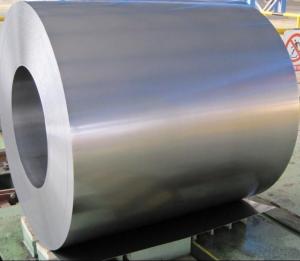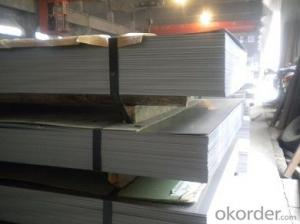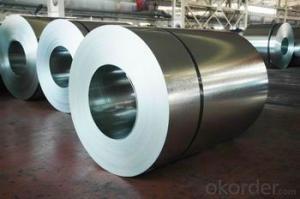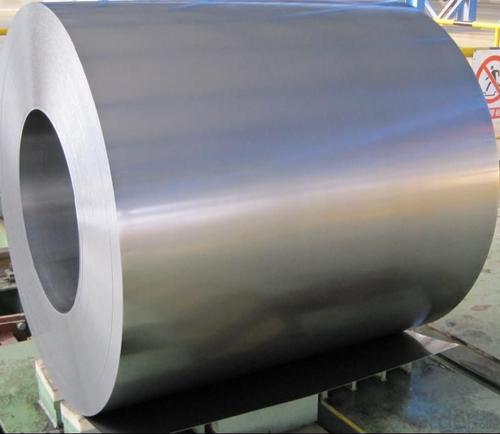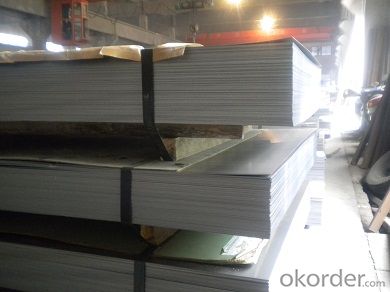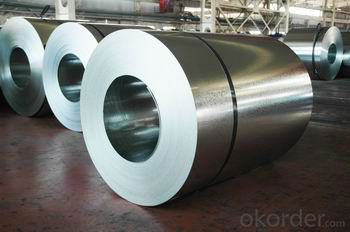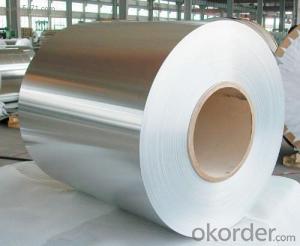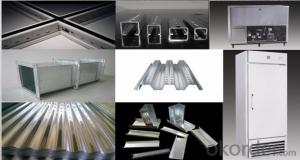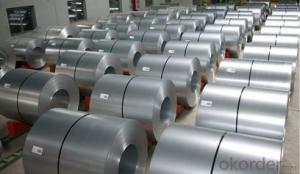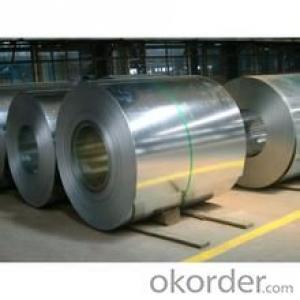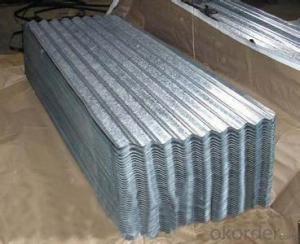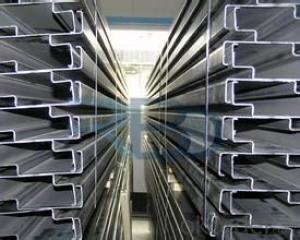Hot-dip Zinc Coating Steel Building Roof Walls with Best Quality
- Loading Port:
- Shanghai
- Payment Terms:
- TT or LC
- Min Order Qty:
- 50 m.t.
- Supply Capability:
- 8000 m.t./month
OKorder Service Pledge
OKorder Financial Service
You Might Also Like
镀锌Hot-dip Zinc Coating Steel Building Roof Walls
1.Structure of Hot-Dip Galvanized Steel Sheet Description:
Hot-dip galvanized steel coils It offers the economy, strength and formability of steel combined with the corrosion resistance of zinc. The hot-dip process is the process by which steel corrugated sheets and profiles for roofing, cladding, decking, tiles, sandwich walls, rainwater protective systems, air conditioning duct as well as electrical appliances and engineering.
2.Main Features of the Hot-Dip Galvanized Steel Sheet:
• Excellent anticorrosive property
• High strength
• Good formability
3.Hot-Dip Galvanized Steel Sheet Images
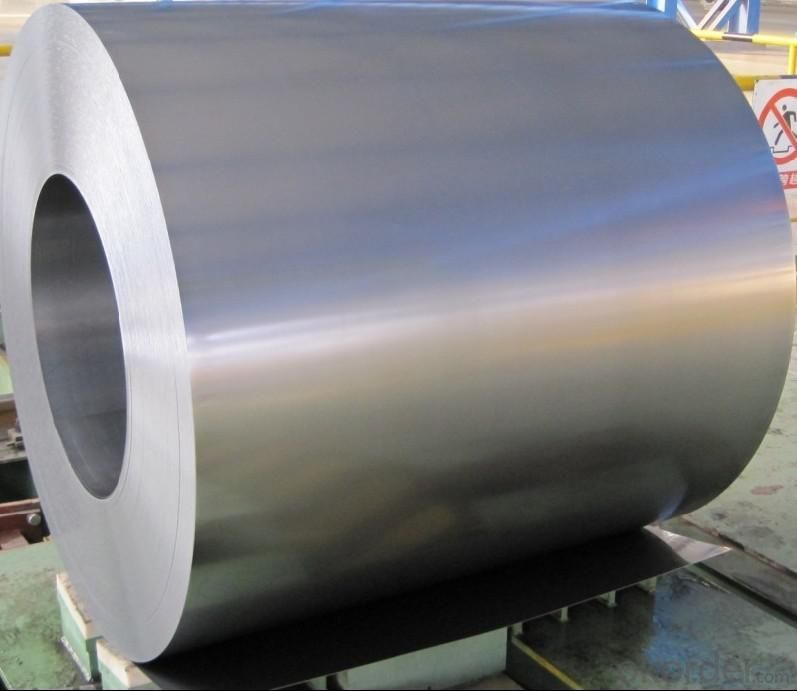
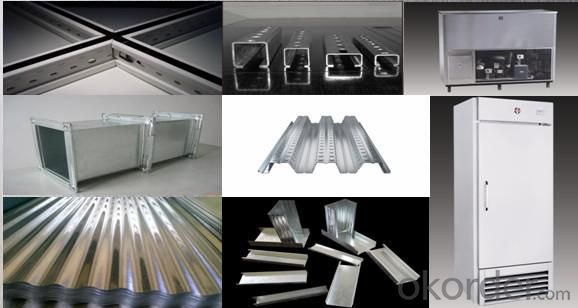
4.Hot-Dip Galvanized Steel Sheet Specification
Standard: ASTM, JIS,EN
Grade: CS, DX51D+Z,SGCC, SS 230~550,S220GD+Z~S550GD+Z, SGC340~SGC570
Thickness: 0.1mm~5mm
Width: max 2000mm
Coil weight:3-12 MT
Coil ID:508/610mm
| Processability | Yield strength | Elongation % | 180°cold-bending | ||
| Common PV | - | 270-500 | d=0,intact,no zinc removal | ||
| Mechanical interlocking JY | - | 270-500 | d=0,intact,no zinc removal | ||
| Structure JG | >=240 | >=370 | d=0,intact,no zinc removal | ||
| Deep drawn SC | - | 270-380 | d=0,intact,no zinc removal | ||
| EDDQ SC | - | 270-380 | d=0,intact,no zinc removal | ||
5.FAQ of Hot-Dip Galvanized Steel Sheet
We have organized several common questions for our clients,may help you sincerely:
2.How to guarantee the quality of the products?
We resolutely put an end to unqualified products flowing into the market. At the same time, we will provide necessary follow-up service assurance.
3. How long can we receive the product after purchase?
The cargo readiness usually takes 15-30 days, but the shipment will depend on the vessel situation.
- Q: What is the minimum thickness of a steel coil?
- The minimum thickness of a steel coil can vary depending on the specific requirements and standards set by the industry. However, in general, the minimum thickness of a steel coil is typically around 0.15 millimeters or 0.006 inches.
- Q: I was just thinking, is their a way to make steel qualities inherent in concrete, therefore eliminating the need for re bar?
- There is an iron powder reinforced concrete flooring that improves abrasion resistance. However, you cannot get the tensile strength enhancement that is possible with rebar.
- Q: How is the thickness of a steel coil measured?
- The thickness of a steel coil is typically measured using a tool called a thickness gauge, which is capable of accurately determining the thickness of the steel through direct contact.
- Q: i got the belly button ring from icing and its surgical steel are they the same things?
- yes they are same kind of steel
- Q: How are steel coils used in the production of agricultural implements?
- Steel coils are used in the production of agricultural implements as they are typically rolled into specific shapes and sizes to create parts such as blades, tines, and plowshares. These coils provide the necessary strength and durability required for farm machinery to withstand the demanding conditions of agricultural work.
- Q: Can steel coils be coated with holographic patterns?
- Yes, steel coils can be coated with holographic patterns. This coating process involves applying a thin layer of holographic material onto the surface of the steel coils, creating a visually striking and distinctive holographic pattern.
- Q: Is sterling silver better than surgical steel as far as being hypoallergic in earrings? If I have a choice which should I get? Thanks!
- Surgical steel.
- Q: What are the common surface treatments for galvanized steel coils?
- Galvanized steel coils can undergo various surface treatments to improve their corrosion resistance and appearance. Passivation is one such treatment, where a protective material like zinc phosphate or chromate is applied to create a barrier against moisture and atmospheric elements. This also enhances the adhesion of subsequent coatings or paints. Another treatment is chromate coating, which involves applying a thin layer of chromate to the steel surface. This provides extra protection against corrosion and enhances the steel's appearance. Chromate coatings can be clear or colored, depending on the desired aesthetic. Oiling is a common treatment that involves applying a thin layer of oil to prevent rust and corrosion during storage and transportation. It also offers temporary protection against moisture and other environmental factors until the steel is further processed or used. These surface treatments are widely used to improve the performance, durability, and appearance of galvanized steel coils, ensuring they can withstand harsh conditions and maintain their quality over time.
- Q: What are the disadvantages of using steel coils?
- One disadvantage of using steel coils is their weight and size, which can make transportation and handling challenging. Additionally, steel coils are susceptible to corrosion, requiring regular maintenance and protective measures to prevent rusting. The production of steel coils also contributes to environmental pollution due to the energy-intensive manufacturing process. Lastly, the upfront cost of steel coils can be relatively high compared to other materials, which may not be suitable for budget-constrained projects.
- Q: I am about to do a welding project and we are instructed to only use mild steel. I want to use found objects like coins, spoons, bottle caps, screws, and other small fasteners. Are these mild steel? What other objects can I use that are mild steel?
- not really. Coins aren't usually made from steel (e.g. an US cent is mainly zinc which will melt with releasing toxic fumes while welding), spoons are usually stainless steel (which is not mild steel), bottle caps can be steel but also aluminum. Fasteners can be made from a wide variety of metals. Generally mild steel is steel with a relatively low content of carbon (2%) which makes it easier to weld. It's used a lot for structure in building (e.g. rebar). Mild steel is also cheaper than other kinds of steel. Tools are usually made from high carbon steel. Generally I'd recommend to go to the scrap yard and pick up some shapes and pieces you like if you don't mind having to clean the rust off. Most will be mild steel. Welding small and thin pieces is much more challenging than welding larger pieces of metal. You are more likely to melt a bottle cap than weld it. Also your steel needs to be clean (no paint, sandblast or brush rust off). I would highly recommend to talk your project over with your teacher before you get all frustrated.
Send your message to us
Hot-dip Zinc Coating Steel Building Roof Walls with Best Quality
- Loading Port:
- Shanghai
- Payment Terms:
- TT or LC
- Min Order Qty:
- 50 m.t.
- Supply Capability:
- 8000 m.t./month
OKorder Service Pledge
OKorder Financial Service
Similar products
Hot products
Hot Searches
Related keywords
